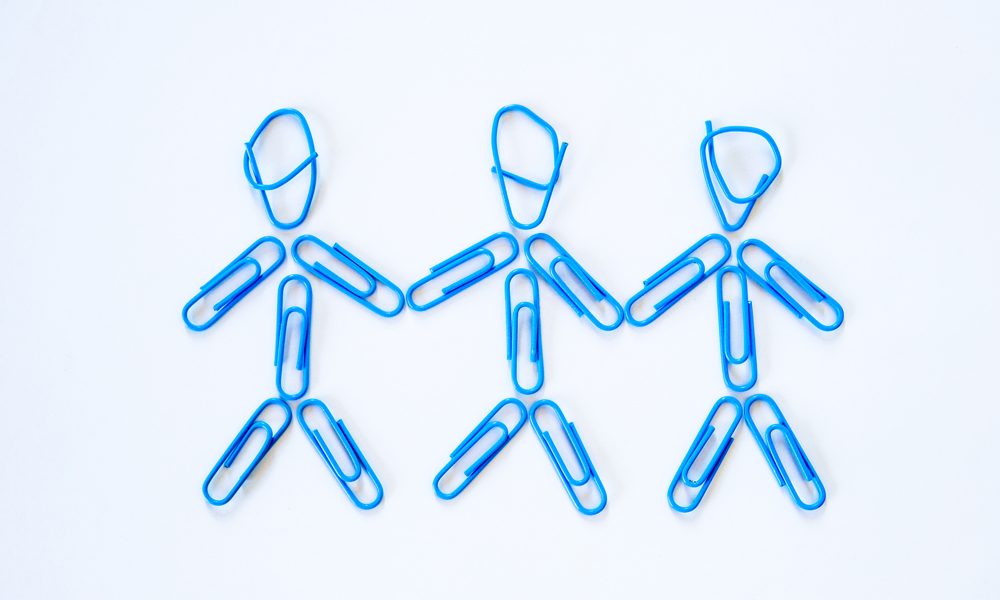Why are open relationships so popular among gay men, but not gay women…
If you’re a gay or bisexual man, I’m 100 per cent certain you’ve met an open couple. (“Open,” of course, means both partners in a relationship agree that each may have sexual relations with others.) You have, right? The reason I’m so certain is because it’s so common – especially among gay men.
In therapist Michael Dale Kimmel’s book, The Gay Man’s Guide to Open and Monogamous Marriage, he argues that, based on his experience, half of gay male relationships are not 100 per cent monogamous. In addition, he finds most begin monogamous, but tend to “open up” after the first few years.
In 2005, a study found that more than 40 per cent of gay men had an agreement that sex outside the relationship was permissible, while fewer than five per cent of heterosexual and lesbian couples reported the same. Why are gay men in particular more likely to have open relationships than are any other gendered pairing? I’ve found the answer is far from simple. So let’s dig in.
“Marriage between two men is – in my experience as a psychotherapist – dramatically different than heterosexual marriage,” Kimmel writes in his book. “It’s a double testosterone marriage. With all that testosterone, sex is probably going to be handled quite differently for us than for some straight couples or even for some lesbian couples.”
In addition to sex, Kimmel notices gay couples typically experience two challenges more intensely than opposite-sex or lesbian couples: competition and conflict. Both of those are derived from – you guessed it – testosterone. And while testosterone is crucial in maintaining muscle mass, bone density and sex drive, it has also been associated with risky behaviour: excessive consumption of alcohol and recreational drugs, high-risk sex, driving at unsafe speeds.
In a man’s 20s and 30s, our testosterone levels are particularly high, meaning we have plenty of energy that we don’t know how to channel constructively. Therefore, we bring it into our relationships and compete with our partners – not only sexually, but with regards to who’s more successful, stronger, smarter, etc. This, of course, leads to conflict. To rectify this concern, many gay men remedy their high levels of testerone with sex outside of the relationship under an open agreement. No harm, no foul.
“One factor unique to gay male relationships is the mechanics of sexual intimacy,” Dr. Brian Cassmassi, a psychiatrist and gay man who’s previously been in open relationships, tells IN. “Some couples choose to become open because although they have a strong romantic and emotional connection, they may not pair as well physically, especially in the cases where both partners are tops or bottoms.” Dr. Cassmassi says he often sees men in healthy open relationships invite guests over who can perform the other position for both partners, satisfying each other’s needs.
If this collective proclivity is indeed tied to testosterone, is the attraction towards open relationships more of a male thing or, more specifically, a gay male thing? Dr. Cassmassi believes it to be the former. But given the fact that gay men do not typically adhere to cultural institutions established by heterosexual people, gay men have more freedom to reinvent it, especially when it doesn’t jive with the lifestyle. In other words: why settle for something that was established by a sexual orientation we don’t identify with? Short answer being: we don’t.
Besides, let’s be perfectly honest: much of gay culture has revolved around sex and hookups (with early meeting spots to include bathhouses, bars and online hookup apps) for people newly exploring their sexuality. Thus, the sexual curiosity and freedom inherent to gay culture seems to lend itself towards continued open exploration of sexuality, even within a relationship.
In terms of why it’s more popular among gay men, Dr. Cassmassi says gay men in particular are more likely to engage because unwanted pregnancy is not a risk, whereas it is for open straight couples. In addition, lesbian couples often involve two women who prefer the stability of a monogamous relationship.
Knowing the above to be true, there’s still a fairly persistent stigma towards open relationships, even within the LGBT community. In 2012, four studies from the University of Michigan found that participants’ perceptions of monogamous relationships were “overwhelmingly more favourable” than of open relationships. The reasons – that the idea of “emotional monogamy and sexual non-monogamy” is a way to rationalize not being faithful to your partner –are unfounded. Research funded by the Rural Center for Aids/STD Prevention at Indiana University conducted 45-minute individual interviews with 10 gay couples in open relationships, and found that non-monogamous relationships can actually lead to a happier, more fulfilling partnership.
After conducting the interviews, researchers said the couples didn’t seem less satisfied than monogamous couples, and noted that their communication is in fact better, because open couples negotiate specific details about what’s permissible in their relationship and what’s not. The researchers also found that open relationships don’t put gay men at disproportionate risk for HIV and other STDs.
However, there is one particularly disappointing reason why so many men engage in open relationships: a fear of intimacy, which stems from homosexual shame.
“The experience of coming to terms with your homosexual identity can often be with emotional abandonment,” Brian Norton, a psychotherapist at Columbia University’s department of counselling and clinical psychology, told The Guardian. “Our experience with love and intimacy at an early age is often broken and compromised, so when someone tries to get close to us as an adult, defences go up. It’s human nature to avoid revisiting feelings of abandonment, and open relationships may be a way of keeping a distance [from] another man.”
Let’s look at it like this: for too long, heterosexual couples have dictated how everyone is supposed to love. If you choose to see monogamy as a sense of ownership, then open your relationship. If you choose to see monogamy as deeply romantic and traditional, then stay in a closed relationship. It’s as easy as that. Just don’t chastise others for not sharing your same outlook – we can co-exist. Only recently have people begun to open their minds and relationships to explore a new kind of bond that is no more or less substantial than any other. So keep that up. It’s progress, and super liberating.
BOBBY BOX is a prolific freelance journalist in Hamilton, Ont. He currently works as contributing editor at Playboy.com and has had the privilege to speak with the world’s most recognized drag queens, including, most recently, Trixie Mattel and Alaska Thunderfuck. While proud of his work, Bobby is not above begging. He asks that you follow him on Twitter at @bobbyboxington.






POST A COMMENT